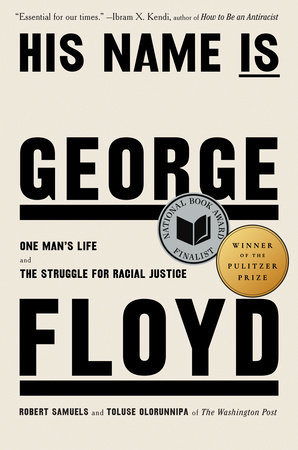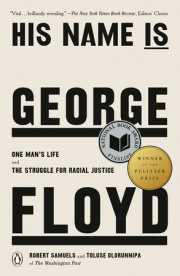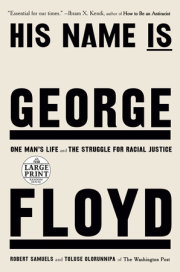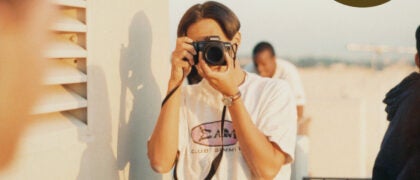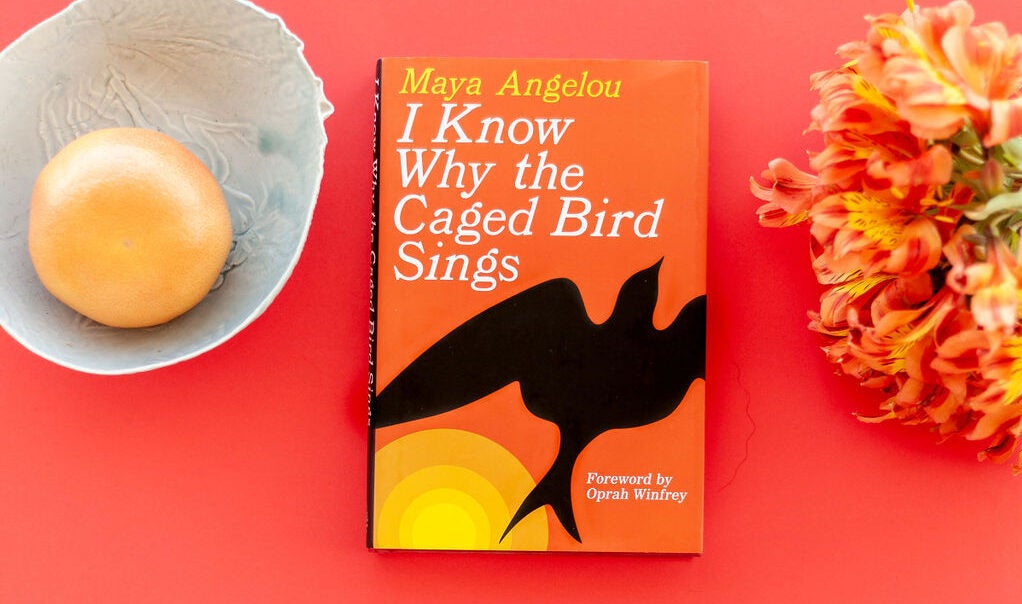Chapter 1
An Ordinary Day
"It's Memorial Day. Y'all wanna grill?"
George Perry Floyd Jr. wasn't particularly skilled at flipping burgers, but he was glad when his friend Sylvia Jackson suggested the diversion. The coronavirus pandemic had left him jobless and listless, a shadow of the gregarious man his friends and family once knew. He had been trying to avoid spending more time in the darkness, feeding the addiction he could not seem to escape.
Jackson's modest home in North Minneapolis served as a family-friendly refuge. In May 2020, Floyd would spend most days on her couch, watching iCarly and Mickey Mouse Clubhouse with her three girls. Other times, he'd help her craft TikTok videos in hopes that one day they might go viral.
"Let's do this one," she'd say, before dancing in her kitchen to the music of Mariah Carey's "Fantasy." Floyd would stare at the camera with mock-seriousness.
They were often joined by two friends who had worked with them at the Salvation Army, a quarantine quartet meant to keep one another company as they waited for the world to go back to normal. Jackson, thirty-two, rolled her eyes as Floyd would go on about chopped-and-screwed music, the hip-hop genre that emerged from his Houston hometown. In the evening, Floyd would talk throughout whatever movie they were watching, then shower her with questions about the plot afterward. Her daughters loved camping, so they sometimes set up tents and slept under the stars. Other nights, they'd throw some hamburgers and hot dogs on the grill and play music, which was the plan on May 25, 2020, the day George Floyd would die.
That day, Jackson had to work an eight-to-two shift as a security guard, so she tasked Floyd with picking up some lighter fluid and charcoal. She handed him the keys to her car, a 2001 navy-blue Mercedes-Benz SUV, and $60 to pay for supplies.
"I'll be back home around three," Jackson told him.
Jackson trusted Floyd; she had loaned him the car several times before. Floyd had no other plans, so he called his friend Maurice Hall around ten a.m. to see if he wanted to hang out. Many of Floyd's friends warned him about Hall, forty-two, who had been sleeping between hotels and his vehicle, dealing drugs while trying to avoid arrest warrants. Floyd had tried for years to move on from using, but Hall provided some kinship during this empty part of his life. The two men would smoke weed or ingest pills, which Floyd would chase down with Tylenol to dilute the impact.
This was not the life either had envisioned when they left Houston's Third Ward for Minneapolis, seeking sobriety and opportunity. Hall told Floyd that he felt he had exhausted his options. Outstanding warrants had driven him underground, and he didn't want to turn himself in to police-he was a father now, with freckled, curly-haired children, and he couldn't stomach the idea of being locked up far away from them. Floyd could empathize with Hall's predicament: he felt guilty being so far away from his young daughter, Gianna.
On the other end of the line, Hall told Floyd he had a day's worth of errands and suggested they complete his to-do list together. Hall was eager to jump into the Benz-he had been borrowing a friend's old truck ever since a woman he had hooked up with in his hotel room had driven off with his ride, taking his clothes, shoes, and video games with her.
Hall suggested that Floyd meet him at a LensCrafters at the Rosedale Commons shopping center off Interstate 35 in nearby Roseville. Floyd could then follow him back to his hotel to exchange vehicles.
"What do you mean I can't come in?" Floyd said to the sales representative when he arrived, turned away by the store's COVID-19 protocol.
Hall bought a pair of clear-framed glasses and then stepped outside, where he saw Floyd dressed in a dirty tank top and blue sweatpants.
"What up, gator?" Hall said, and the two shook hands.
It was close to noon by this point, so they stopped at a Wendy's across the street. Hall ordered a burger with onion rings; Floyd got a Dave's Double. After they carried the food to the Benz and unwrapped the sandwiches, Floyd took out his phone to show Hall a new trend in the world of Southern hip-hop.
"You know about sassa walking?" Floyd asked.
The men ate their burgers and watched music videos of the emerging sound-it contained the heavy, gritty beats of chopped-and-screwed songs, but rappers laced lighter, faster rhymes over the tracks. Some of the videos demonstrated the dance itself, which combined salsa steps with pelvic thrusts.
"It's gonna be big," Floyd said.
Next, they went to drop off Hall's borrowed truck and chilled in his hotel room at the Embassy Suites in Brooklyn Center, just on the other side of the Mississippi River. They ate Cheetos as Hall waited for some buyers to pick up drugs.
After someone came to pick up pills, Hall wanted to show off how successful he had become. He pulled out $2,000 in cash, telling Floyd he had made that much money in a single night. The display was more than a simple flex; Hall thought he might have a solution to Floyd's lingering malaise and hoped Floyd could use his connections in Houston to help boost his drug business. He said he believed he was offering Floyd a great opportunity. Floyd wasn't working; Hall had a bustling clientele, ready to pay.
But Floyd didn't give the idea too much thought, Hall recalled. He didn't want the drug game to be a part of his life ever again. He knew he was a bad hustler. And his last stint in prison had been so traumatizing that he was terrified of what might happen if he got caught up in it anew.
Hall also had to deliver drugs to buyers in different parts of the city, which was another reason he was happy to have Big Floyd around. Hall had become increasingly paranoid about driving himself to drug deals and thought Floyd could take the wheel. They made their way to another hotel twenty miles south, in Bloomington, where they ate sandwiches and drank Minute Maid Tropical Punch. Hall remembered Floyd smoking weed, snorting powdered fentanyl, and taking Tylenol.
As Hall fielded calls from potential buyers, Floyd was busy having conversations of his own. One of the people Floyd was communicating with that day was Shawanda Hill, his former lover.
"I want to see you," she texted him.
Back on the north side, Jackson returned to her house to find no charcoal, no lighter fluid, no car, no Floyd. Concerned by her friend's absence, she called to check in.
"Where are you?" Jackson asked.
"I'm about to see my girl," Floyd said. "I'll be back tonight."
Evening was beginning to fall, and Hall still wanted to drop off clothes at the dry cleaners, get a new cell phone, and shop for a tablet. He thought he could pick one up at a corner store on Minneapolis's south side called CUP Foods, which was known as a spot for buying and selling electronics for cheap. Floyd was a familiar face at CUP-managers said he'd stop by once or twice a week.
He told his old lover that he was on his way to the store. Hill, forty-five, was thrilled at that news-she needed to buy a new battery for her cell phone anyway, and she hoped to sneak a little Floyd time before picking up her granddaughter, whom she had promised to babysit that day. Hill boarded the #5 bus and headed down to the corner of East Thirty-Eighth Street and Chicago Avenue.
Hall and Floyd got to CUP Foods first. Hall walked to the back of the store, outside the view of the security cameras, and bought a tablet for $180. The manager said they needed some time to clean its hard drive, so instead of waiting around, Hall and Floyd headed about a mile north, to Lake Street, where Hall bought himself an iPhone 7.
It was close to seven thirty p.m. when the two friends circled back to CUP. Floyd parked the Benz across the street, and Hall went inside to pick up his tablet. He walked down the store's long, narrow aisles and past rows of fruits and vegetables to the electronics section, where locked glass display cases showcased tablets, laptops, and prepaid cell phones in bright green boxes. The cashier told Hall he needed to give him a refund because he had been unable to clear off the old files. Hall was still trying to figure out if there were any other options when Floyd came in a few minutes later. Floyd meandered around the front of the store, fumbling with cash in his pocket and saying hello to almost every employee he came across.
Floyd made his way through the aisles, passing display shelves that offered Oreo cookies and Little Debbie snacks. He then grabbed a half-rotten banana and said something to a teenage cashier, before bending over in a fit of laughter. The cashier, whose father was one of the store's owners, looked puzzled but shrugged it off and pointed his finger with a get-a-load-of-this-guy smirk.
Christopher Martin, another teenager behind the register, immediately noticed Floyd's size-six foot six, 225 pounds, bulging biceps-accentuated by the snugly fitting black tank top he was wearing. Martin asked him if he played baseball.
Floyd stuttered and rambled for a moment before responding that he played football. Martin, tall and slender with light-brown skin, had seen drunk and high customers come into the store before, and he thought Floyd might be under the influence.
Around that time, Hill walked inside and glimpsed Floyd's muscular silhouette.
"Oh my God, Floyd," she said.
"Baby," Floyd said, "I was just thinking about you."
He wrapped his arms around her, and she kissed him where her lips met his body: on his chest, at the valley of his tank top.
Hill, though, was surprised to see Floyd dressed that way, knowing his mother had taught him to look presentable when he was out on the street. Hill asked why he was wearing a tank top and baggy pants.
"I've been moving," Floyd explained. And before all the errands with Hall, Floyd said he had been playing basketball.
Floyd suggested that maybe they could head to a park and catch up. After Hill told him that she needed to watch her granddaughter, Floyd offered to give her a ride over there. Hill smirked.
"I was thinking I was going to get me some," she recalled.
Hill and Hall had never met each other before, but the trio ended up leaving the store together. Before they left, Floyd also bought a pack of menthol cigarettes.
"He gave him the money, I saw them take the money," Hill said. "They give him the cigarettes, and they give him the change. We walked out the store, went in the car, we were in the car, and we talked like, I don't know, a good eight minutes . . ."
Back inside CUP Foods, Martin lifted the $20 bill above his head and held it up against a light. He noticed it had the bluish hue of a $100 bill and suspected it was a fake. He took the bill and showed it to his manager, who asked him to go outside and summon Floyd back to the store. Because Floyd was a regular at CUP, the manager figured it was a mistake that an old customer would be willing to fix.
Inside the Benz, both Hill and Hall sensed the day's errands were catching up with Floyd. While they were chatting, he started to fall asleep in the driver's seat-a trait his friends said was typical. Hall grew nervous. Because the corner was known for gang activity, he didn't want to draw the attention of any police.
"We gotta go from here," Hall said.
Just then, Martin and another teenage employee from CUP walked up to the car on the passenger's side. They told Hall that the boss wanted to see them because the money was counterfeit.
"I didn't give him that," Hall said.
The cashiers pointed to Floyd, who was still slouched over, struggling to stay awake, as the culprit.
"Floyd, did you really do that?" Hill asked in surprise, since Floyd was not known to cheat people out of money.
"Why is this happening to me?" Floyd said, before brushing off the requests to go back inside. Martin gave up and walked away with the other employee.
A few minutes later, Martin returned to the car with two other employees, again asking Floyd to come back inside. But Hill and Hall thought Floyd was too exhausted to understand what was happening.
"We kept trying to wake him up," Hill recalled.
She searched her pockets but didn't have any more cash on her. She apologized to the employees and promised that Floyd would speak to the manager as soon as he woke up.
After a few minutes, Floyd gathered his bearings. He shook himself and patted his pockets for the car keys.
"Floyd, look, that little boy said that money wasn't real," Hill told him. "They about to call the police."
They already had. She glanced across the street and saw two police officers walking into the store. Minutes later, they stepped out.
"They're moving around a lot," one of the officers said to his partner as they approached the car. He gripped his flashlight.
Inside the vehicle, Floyd had started to panic, still searching for the keys. Hall was panicking, too, knowing he had drugs in the car that he needed to hide.
"I'm stuffing and tucking," Hall recalled. "So, the next thing you know, the cop is on his side, all you hear is-boom!"
At the sound of the flashlight hitting the window, Floyd turned to the officer with the terrified look of a man whose mama had told him what could happen when a Black man encountered the wrong police officer.
Copyright © 2022 by Robert Samuels. All rights reserved. No part of this excerpt may be reproduced or reprinted without permission in writing from the publisher.




